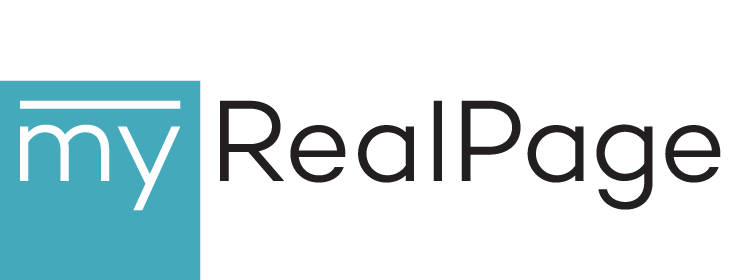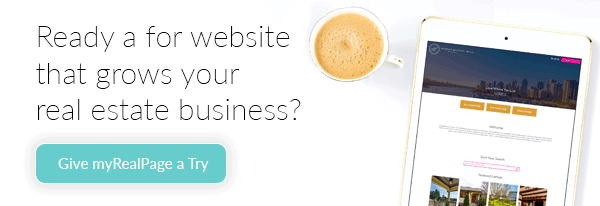How to Build a Real Estate Website: The Ultimate Guide

After your real estate license, your real estate agent website is the most important investment you can make in your real estate business.
It’s your biggest asset when it comes to building your brand, generating leads and growing your client base.
A successful, lead-generating real estate website starts with the site build. It’s a process that requires care, consideration and the right tools.
Whether you’re just starting out or you want to start over, we’re here with a roadmap. Here’s the ultimate guide to creating a real estate website.
How To Build a Real Estate Website
It Starts with Understanding Your Target Market
The goal of any real estate website is ultimately to generate leads.
To do that, you need to know your target market — who they are and what they want and need. Once you have a deep understanding of your target market, you can create a site that best serves them.
The best way to study your target market: create real estate buyer personas.
Creating personas is an exercise that will help you get crystal-clear on what kind of messaging and content your website will need to deliver in order to turn your target clients into leads. After all, these are the people that you want navigating to your website each month.
Check Out the Competition
Real estate is one of the most competitive industries. Finding ways to stand apart from other agents pursuing the same kind of clients is a constant challenge.
Building a real estate website is one way to establish your own identity and stand out from the crowd. Before you start brainstorming your real estate website content and design ideas, take a moment to scope out what fellow agents in your market are doing online.
Here are a few ways to get your creative juices flowing:
- Spy on the competition! Check out 5-10 websites of your real estate colleagues in different cities. You might be surprised by the cool features they’re using.
- Search online for “great real estate websites in (insert city name).” This is a quick way to discover websites that are already considered successful.
- Explore award-winning design sites. Platforms like Awwwards, TheBestDesigns, Dribbble, our Portfolio, and Behance showcase websites across all industries, including real estate. You might find some hidden gems here!
- Think outside the real estate box! What websites do you enjoy outside of real estate? Look for elements you admire from other industries that could translate well to your own website.
Take note of similarities, things you like and don’t like, and any opportunities you see to do things a bit differently.
Selecting a Domain Name for Your Real Estate Website
Your real estate website needs a memorable address, just like your physical office. That’s where your domain name comes in – it’s what people type in their browser to find you online.
Choosing the Right Domain:
- Keep it catchy and easy to remember. People should be able to guess your website name after hearing it once.
- Availability check: Once you have a few ideas, do a quick search to see if they’re available for purchase.
Securing Your Domain:
- Domain registrars: These are like online landlords. They sell and manage domain names.
- Top-Level Domains (TLDs): These are the endings like “.com,” “.net,” or “.org.” For real estate, “.realtor” is a popular option, but you can choose the one that best suits your brand.
- Cost: Domain names typically range from a few dollars per year to a premium price for highly sought-after names.
Making the First Move:
Snag your ideal domain name early on. It’s a crucial first step in building your online presence!
Must-Have Features for Your Real Estate Website: Attract, Engage, Convert
Captivate Buyers and Sellers:
- Showcase Properties: High-quality photos, virtual tours, and clear descriptions are essential to bring listings to life online.
- Filter Magic: Make it easy for buyers to find their dream home with advanced search and filter options.
- Compelling CTAs: Don’t miss a lead! Use clear calls to action, like “Schedule a Showing” or “Contact for More Info.”
Make Contact Seamless:
- Easy-Find Contact Info: Include your phone number, email address, and a contact form prominently on your website.
- Registration with Benefits: Allow visitors to register for property updates, saved searches, and other valuable features. This builds trust and establishes a client base.
Visually Stunning & Mobile-Friendly:
- Professional Photos: High-quality visuals are key! Showcase the beauty and details of your listings with professional photography.
- Mobile-First Design: Ensure your website looks amazing and functions flawlessly on all devices, especially smartphones and tablets.
Boost Engagement & Generate Leads:
- Informative Blog: Regularly publish engaging blog posts on real estate topics. This establishes you as an expert, attracts visitors, and improves SEO.

Building Your Real Estate Website with Purpose: Plan Your Pages
You know who you’re marketing to and what they need from your real estate website. You’ve taken a look at what your competitors are up to and have a sense of what you can do differently.
Now it’s time to plan your real estate website pages.
Start with the basics:
- An “About Me” page (your agent bio)
- A real estate blog page
- A contact page
- A page for your listings (ideally IDX enabled website– or DDF-enabled; here’s how to choose)
These pages are a great starting point, but you’ll want to flesh your site out a bit more in order to deliver the best possible experience.
Here are some other pages you should consider adding:
- Neighbourhood pages (one for each area you serve)
- Downloadable reports
- Results or testimonials
- New and upcoming construction
- Upcoming open houses
- Newsletter sign-up
- FAQs
- VOW-enabled search page
More pages don’t necessarily mean more work. Here’s how to easily add custom pages to your real estate website.
Prep Your Content
Creating your content ahead of building your website is the way to go. It means you can test pages and improve your real estate website content accordingly. Then, when the site infrastructure is built, you’re ready to launch.
Content = everything on your site. Headlines, sub-headlines, calls-to-action, navigation text, photos, your bio, contact information, blog posts (just a few so your page isn’t blank to start), and so on.
For written content, open a Word or Google Doc and start drafting copy for each of the site pages you’ve decided on.
For imagery, create sub-folders for each of the site pages to store files. Ensure each file is high-resolution (for web, that means 72 pixels per inch, or 72ppi).
Don’t rush this process. How your website looks and sounds is what will convince a visitor — or not — to complete one of the aforementioned lead capture forms, taking the first step towards becoming a client.
Your copy (the written content) should be clear and engaging, with voice and tone representative of your real estate brand. Check out our realtor’s guide to writing awesome website content.
The imagery and graphics on your website should be crisp, well-suited to your brand and, wherever possible, original — stock photography should be used minimally.
Choose a Website Builder
With your outline ready and content prepped, you’re ready to move ahead with creating your real estate website.
Building a comprehensive website from scratch is a huge undertaking, one best left to the pros.
Don’t know how to code? You could hire a website designer, but that comes with a pretty significant price tag. It makes maintenance and updates tricky, too, as it typically means going back to the designer with changes.
The best way to get a professional-looking, lead-generating real estate website: use a custom real estate agent website builder.
No-code custom website builders for real estate agents, such as myRealPage, make it easy for real estate agents to create their own site packed with all the features they need to turn visitors into leads.
Using myRealPage, realtors can create a personalized site without coding, one with custom pages, SEO, automated listings, MLS listing searches, lead generation tools, and integrations with all kinds of third-party tools. And once it’s live, it’s easy to maintain.
Forget self-taught coding and expensive web designers. Learn more about how no-code real estate website builders like myRealPage make it easy for agents to create customized, lead-generating real estate websites.
Last Updated on September 17, 2024 by myRealPage


